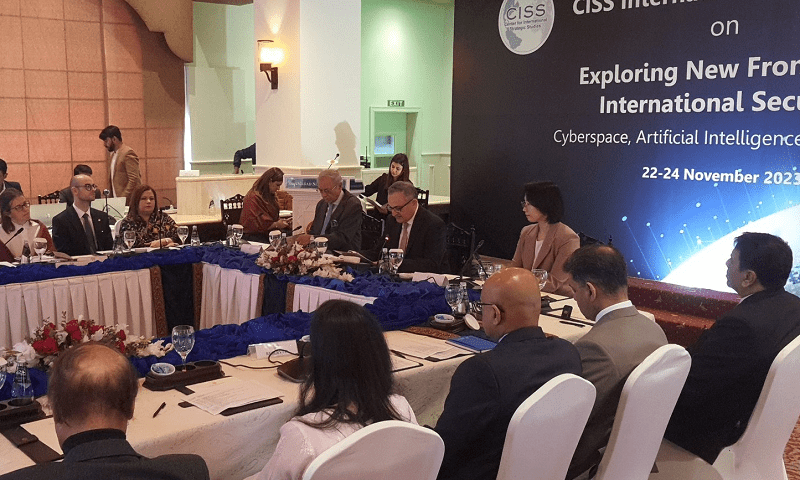Syrus Qazi, the foreign secretary, has called for a legally binding international framework to ensure the responsible use of AI and cybersecurity and to address unfair restrictions on access to advanced technology by developing nations.
During the final session of a workshop in Islamabad, the foreign minister emphasized Pakistan’s stance on the necessity of international cooperation to establish a regulatory framework governing the ethical deployment of cyberspace and artificial intelligence technologies.
The event, co-hosted by the Center for International Strategic Studies (CISS) and the United Nations Institute for Disarmament Research (UNIDIR) based in Geneva, focused on the intersection of AI and cybersecurity in the context of global security, the safety implications of emerging technologies, and related social issues.
Mr. Qazi highlighted Pakistan’s support for a rule-based international order that prioritizes transparency, accountability, and the protection of critical civilian infrastructure.
Pakistan’s approach to AI is characterized by a commitment to global cooperation, active participation in international dialogues, inclusive governance practices, and advocacy for equal access to AI systems, particularly for developing countries.
The foreign minister underscored the dual nature of AI solutions, acknowledging both their potential benefits and the risks they pose to global and regional stability. Pakistan remains dedicated to addressing these challenges effectively.
Furthermore, Pakistan is actively engaged in addressing virtual threats and mitigating the risks associated with the military applications of AI, in alignment with global efforts.
Mr. Qazi reaffirmed Pakistan’s strong support for universal and equitable access to new and emerging technologies, condemning excessive restrictions that hinder such access.
He emphasized the need for collaborative efforts among stakeholders, including governments, businesses, academia, and civil society, to develop strategies for ensuring a secure, stable, and accessible cyberspace.
The imposition of “unreasonable restrictions,” particularly under the guise of security concerns, could impede scientific and technological advancements, perpetuating disparities between developed and developing nations.
According to Dongyoun Cho, a senior researcher at UNIDIR, data serves as a fundamental driver of AI advancements but also gives rise to various social challenges, including issues related to data quality and accuracy.
Ambassador Ali Sarwar Naqvi, the Executive Director of CISS, highlighted the transformative impact of technological developments on society, emphasizing the importance of understanding and addressing the complexities associated with emerging technologies.
He stressed the need for a strategic and informed approach to effectively navigate the challenges posed by technological progress.






